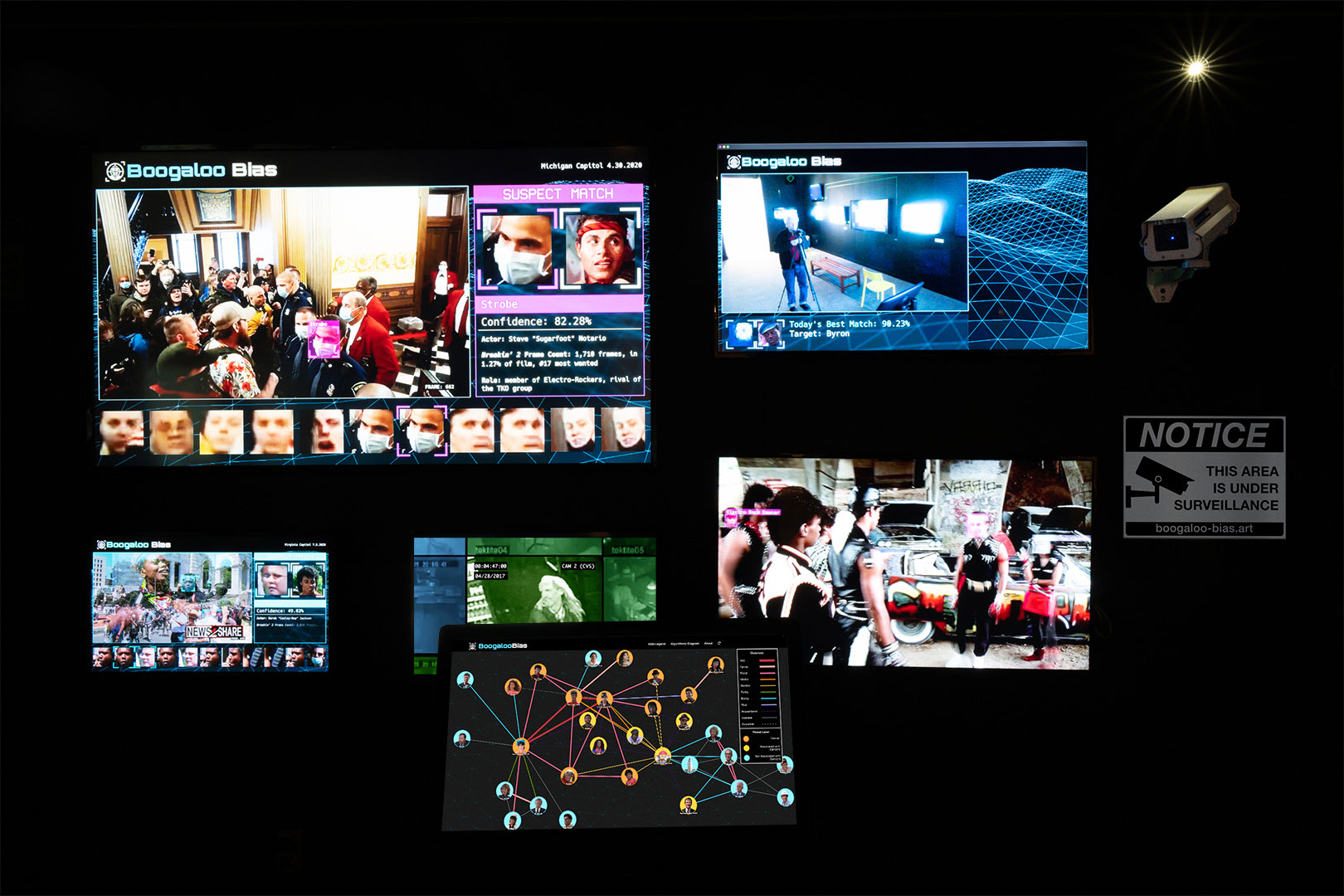Jennifer Gradecki, Derek Curry
Boogaloo Bias is an interactive artwork and research project that addresses some of the known problems with the unregulated use of facial recognition technologies, including the practice of ‘brute forcing’ where, in the absence of high-quality images of a suspect, law enforcement agents have been known to substitute images of celebrities the suspect is reported to resemble. To lampoon this approach, the Boogaloo Bias facial recognition algorithm searches for members of the anti-law enforcement militia, the Boogaloo Bois, using a facial recognition algorithm trained on faces of characters from the 1984 movie Breakin’ 2: Electric Boogaloo. The film is the namesake for the Boogaloo Bois, who emerged from 4chan meme culture and have been present at both right and left-wing protests in the US since January 2020. The system is used to search live video feeds, protest footage, and images that are uploaded to the Boogaloo Bias website. All matches made by the system are false positives. No information from the live feeds or website uploads is saved or shared. Boogaloo Bias raises questions about automated decision making, public accountability and oversight within a socio-technical system where machines are contributing to a decision-making process. Facial recognition technology allows for the quick surveillance of hundreds of people simultaneously and the ability to automate decisions using artificial intelligence, establishing a power structure controlled by a technocratic elite. Rather than providing a solution for how to improve facial recognition, the project pushes the logic behind the current forms and uses of facial recognition in law enforcement to an extreme, highlighting the absurdity of how this technology is being developed and used. Boogaloo Bias is made using only open source software, including OpenCV, Flask, dlib, Pillow, and the Python face-recognition module.
https://www.boogaloo-bias.art/
Jennifer Gradecki is an artist-theorist who investigates secretive and specialized socio-technical systems. Her artistic research has focused on social science techniques, financial instruments, dataveillance technologies, intelligence analysis, and social media misinformation. Gradecki has presented and exhibited at venues including Ars Electronica (Linz), ISEA (Barcelona), National Gallery X (London), NeMe (Cypress), ADAF (Athens), International Symposium on Computational Media Art (Hong Kong), and the Centro Cultural de España (México). Her research has been published in Big Data & Society, Visual Resources, and Leuven University Press. Her artwork has been funded by Science Gallery Dublin, Science Gallery Detroit, and the NEoN Digital Arts Festival.
Derek Curry (US) is an artist-researcher whose work critiques and addresses spaces for intervention in automated decision-making systems. His work has addressed automated stock trading systems, Open-Source Intelligence gathering (OSINT), and algorithmic classification systems. His artworks have replicated aspects of social media surveillance systems and communicated with algorithmic trading bots. Derek earned his MFA in New Genres from UCLA’s Department of Art in 2010 and his PhD in Media Study from the State University of New York at Buffalo in 2018. He is currently an Assistant Professor at Northeastern University in Boston. https://derekcurry.com/




